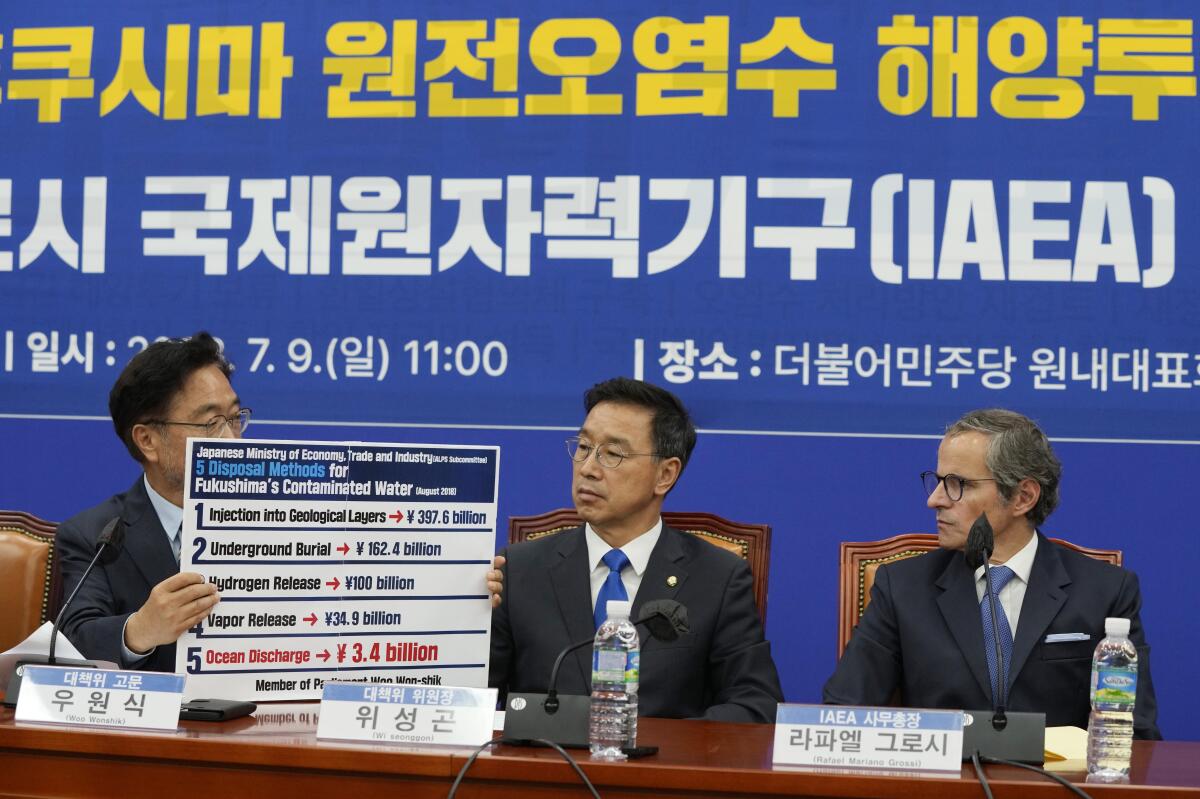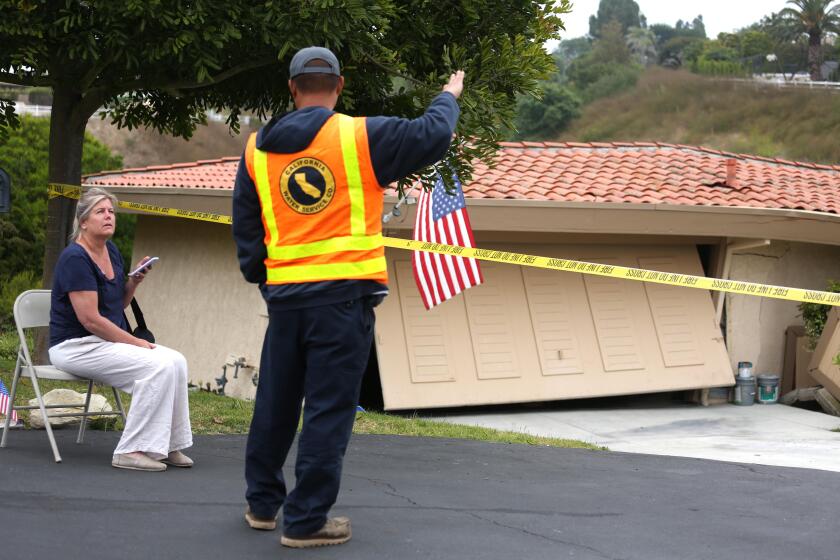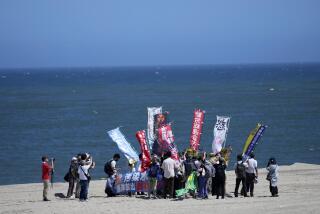South Korean lawmakers berate IAEA chief over Japanese plans to release treated Fukushima wastewater

- Share via
SEOUL — South Korean opposition lawmakers criticized the head of the United Nations’ nuclear watchdog on Sunday for its approval of a Japanese plan to release treated wastewater from the damaged Fukushima nuclear power plant into the sea.
They had a tense meeting with Rafael Mariano Grossi, the International Atomic Energy Agency’s director general, that took place while protesters screamed outside the door.
Grossi arrived in South Korea over the weekend to engage with government officials and critics and allay public concerns about food safety.
The IAEA last week approved the Japanese discharge plan, saying the process would meet international safety standards and would pose negligible environmental and health impacts. South Korea’s government has also endorsed the safety of the Japanese plan.
In his meeting with members of the liberal Democratic Party, which controls a majority in South Korea’s parliament, Grossi said the IAEA review of the plan was based on “transparent” and “scientific” research.
He acknowledged concerns over how the plan would play out in reality and said the IAEA would establish a permanent office in Fukushima to monitor how the discharge process is implemented over the next three decades.
“Our conclusion has been that this plan, if it is carried out in the way it has been presented, would be in line, would be in conformity, with the international safety standards,” Grossi said.
The cracks in the homes, which are on Peartree Lane bordering a canyon, were visible on the outside and inside.
The lawmakers criticized IAEA’s review, which they say neglected long-term environmental and health effects of the wastewater release and threatens to set a precedent that may encourage other countries to dispose of nuclear waste in the sea.
They called for Japan to scrap the discharge plan and work with neighboring countries to find safer ways to handle the wastewater, possibly including long-term storage on land.
The party has also criticized the government of South Korean President Yoon Suk-yeol for putting public health at risk while trying to improve relations with Japan.
“If you think [the treated wastewater] is safe, I wonder whether you would be willing to suggest the Japanese government use that water for drinking or for industrial and agricultural purposes, rather than dumping it in the sea,” Woo Won-shik, a Democratic Party lawmaker who attended the meeting, told Grossi. The party said Woo has been on a hunger strike for 14 days to protest the Japanese plan.
Additional details from the meeting weren’t immediately available as reporters were asked to leave after opening statements.
Dozens of protesters shouted near the lobby of the National Assembly’s main hall where the meeting was taking place, holding signs denouncing the IAEA and Japan. On Saturday, hundreds marched in downtown Seoul, demanding that Japan scrap its plan.
Grossi was to fly to New Zealand later Sunday and then to the Cook Islands as he tries to reassure countries in the region about the plan.
Hundreds of demonstrators had also marched in downtown Seoul on Saturday demanding that Japan scrap its plans.
A massive earthquake and tsunami in 2011 destroyed the Fukushima plant’s cooling systems, causing three reactors to melt and release large amounts of radiation.
Tokyo Electric Power Co. Holdings, which operates the facility, has been storing the treated water in hundreds of tanks that cover most of the plant and are nearly full.
Japanese officials say the tanks must be removed to make room to build facilities for the plant’s decommissioning and to minimize the risk of leaks in case of another major disaster. The tanks are expected to reach their capacity of 1.37 million tons in early 2024.
Japan first announced plans to discharge the treated water into the sea in 2018, saying it will be further diluted by seawater before being released in a carefully controlled process that will take decades to complete.
The safety of Fukushima’s wastewater has been a sensitive issue for years between South Korea and Japan. The countries have been working in recent months to repair relations long strained over historical wartime grievances to address shared concerns such as the North Korean nuclear threat and China’s assertive foreign policy.
In a statement released by state media Sunday, North Korea criticized the Japanese discharge plan, warning against “fatal adverse impact on the human lives and security and ecological environment.”
The statement, attributed to an unidentified official in North Korea’s Ministry of Land and Environment Protection, also criticized Washington and Seoul for backing the plan.
“What matters is the unreasonable behavior of IAEA actively patronizing and facilitating Japan’s projected discharge of nuclear-polluted water, which is unimaginable,” it said. “Worse still, the U.S. and [South] Korea openly express unseemly ‘welcome’ to Japan’s discharge plan that deserves condemnation and rejection, provoking strong anger of the public.”
More to Read
Sign up for Essential California
The most important California stories and recommendations in your inbox every morning.
You may occasionally receive promotional content from the Los Angeles Times.














